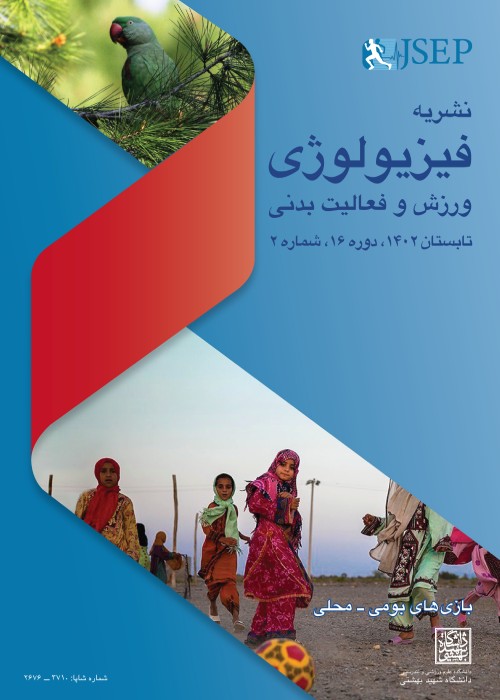Effect of Resistance Training on Hepatic Bile Acid, beta-Klotho Protein and Expression of Farnesoid X Receptor, Fibroblast Growth Factor 15 and Fibroblast Growth Factor Receptor 4 Genes in Hepatic Tissue of Rats with Non-Alcoholic Fatty Liver Disease
Bile acids are known as key metabolic messengers during liver regeneration and the end product of cholesterol catabolism, which are important for nutrient absorption in the intestine. Recent studies describe bile acids as messenger molecules with diverse functions that have a wide range of receptors in the body. Due to these receptors, bile acids can modulate the rate of self-synthesis, lipid, and glucose and energy metabolism. The FXR-FGFR4-KLB signaling pathway and its role in the regulation of bile acid biosynthesis is one of the novel issues in cholesterol metabolism, especially in the condition of non-alcoholic fatty liver disease (NAFLD). Despite the recommendations for patients with NAFLD to participate in regular exercise, the type, intensity and duration of exercise that is most beneficial for these patients is not clearly determined yet. Resistance exercise can be effective in improving NAFLD conditions by increasing fat oxidation, controlling appetite and reducing energy intake. This research was carried out to study the effect of eight weeks of resistance training on liver bile acid (BA), beta klotho protein (KLB) and the expression of farnesoid X receptor (FXR), fibroblast growth factor 15 (FGF15) and fibroblast growth factor receptor 4 (FGFR4) in male rats with non-alcoholic fatty liver disease.
In this study, 16 male Wistar rats (age, six-weeks and weight, 120-160 gr) after induction of NAFLD conditions, with six weeks of high-fat diet were randomly divided into two equal groups (n=8 in each group) of Control (C), and resistance training (R). The resistance training protocol included climbing on a 1-meter ladder with a 2-cm grid and an 85-degree incline. Weighted cylinders ranging from 50 to 75% of their body weight were attached to the rats' tails. The training was carried out for eight weeks period with a frequency of five days per week. Rats were sacrificed 48 hours after the last training session, and the liver tissue samples were taken to for measuring the variables. Data were analyzed by using independent t-test at a significance level of p<0.05.
Following eight weeks of resistance training, hepatic BA decreased significantly in R group compared to C group (p=0.001). In addition, KLB protein levels (p=0.001) and the expression of FXR (p=0.001), FGF15 (p=0.001), and FGFR4 (p=0.001) genes were significantly higher in R group compared to C group.
Non-alcoholic fatty liver is associated with a decrease in the expression of genes such as FXR, FGF15 and FGFR4, as well as a decrease in klotho protein, which results in a disturbance in cholesterol status and subsequent cell damage in the liver. The exercise intervention may have positive effect on the signaling pathway of FXR-FGFR4-KLB and its role in regulating the biosynthesis of bile acids and improve cholesterol metabolism in the body. It seems that resistance training has beneficial effects in improving this signaling pathway.The data of the present study indicate a possible relationship between resistance training and improvement of fat metabolism in the liver. The muscle-liver axis and the role of this type of exercises on the up-regulation of genes involved in the biosynthesis of hepatic bile acid and then the control of cholesterol metabolism can help in achieving a better understanding of the pathogenesis of NAFLD.
- حق عضویت دریافتی صرف حمایت از نشریات عضو و نگهداری، تکمیل و توسعه مگیران میشود.
- پرداخت حق اشتراک و دانلود مقالات اجازه بازنشر آن در سایر رسانههای چاپی و دیجیتال را به کاربر نمیدهد.



